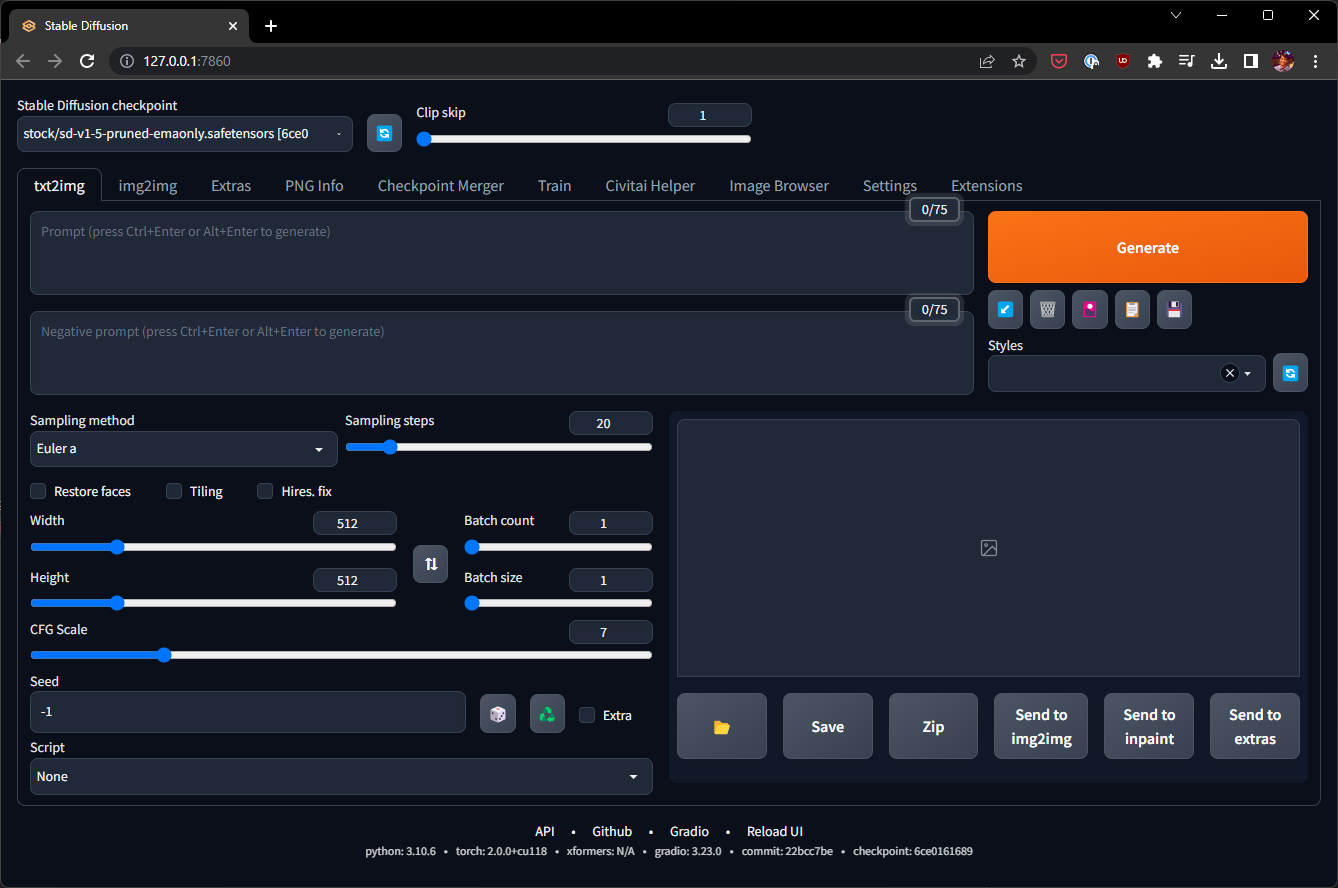Feed digilinux.ru [copy] http://digilinux.ru/feed/ has loading error: cURL error 22: The requested URL returned error: 403 Forbidden
Feed freepost [copy] https://freepo.st/rss/new has loading error: cURL error 22: The requested URL returned error: 500
Feed Pete [copy] https://debu.gs/blog/feed.rss has loading error: cURL error 60: SSL certificate problem: certificate has expired
Quick guide to installing Stable Diffusion

In my last post “AI primer: Image Models 101”, I recommended Midjourney and Stable Diffusion as my top two choices. If your goal is to make beautiful images and art, Midjourney is the best choice, as they have a very easy to use service and can produce high quality output with minimal effort.
However, if you are a hobbyist and tinkerer, or just want to invest a bit of time to go deeper in this space, Stable Diffusion is a great choice. It’s a bit more involved to set up, but has several advantages:
It is one of the few...AI Primer: Image Models 101

It’s spring of 2023, and if you aren’t paying attention to what’s happening in the world of AI, you really should. The world is about to change in big ways!
I’ll save the general discussion on AI for another post — I’m hoping for this article to be one of a multipart series where we dive into the practical aspects of each major area of advancement. My goal is to give readers a taste of what’s going on, what the capabilities of these AI models are, and why you should care.
Let’s start with image generation models, as they’re the oldest in...
When to comment that code
My software tends to have a surprisingly low number of comments. One of my projects, scdoc, has 25 comments among its 1,133 lines of C code, or 2%, compared to the average of 19%.1 Naturally, I insist that my code is well-written in spite of this divergence from the norm. Allow me to explain.
The philosophy and implementation of code comments varies widely in the industry, and some view comment density as a proxy for code quality.2 I’ll state my views here, but will note that yours may differ and I find that acceptable; I am not here to suggest that your strategy is wrong and I...
Redesign of Tox’s Cryptographic Handshake
In 2017, Jason A. Donenfeld (known for WireGuard®) reported an issue in Tox’s handshake [1]. This issue is called “Key Compromise Impersonation” (KCI). I will try to explain the issue as simple as possible:
In Tox you don’t register an account (e.g. with username and password), but instead your identity is solely based on (asymmetric) cryptographic information, a so-called asymmetric key pair. Such a key pair consists of a public part (public key) and a private part (private key). The public part, as the naming suggests, is public and contained in your ToxID which you share with your contacts to be...
Porting Helios to aarch64 for my FOSDEM talk, part one
https://spacepub.space/videos/embed/f6435a6c-34e0-4602-ad5d-f791643111ab
Helios is a microkernel written in the Hare programming language, and the subject of a talk I did at FOSDEM earlier this month. You can watch the talk here if you like:
A while ago I promised someone that I would not do any talks on Helios until I could present them from Helios itself, and at FOSDEM I made good on that promise: my talk was presented from a Raspberry Pi 4 running Helios. The kernel was originally designed for x86_64 (though we were careful to avoid painting ourselves into any corners so that we could port it to more architectures later on), and I initially planned...
Should private platforms engage in censorship?
Private service providers are entitled to do business with whom they please, or not to. Occasionally, a platform will take advantage of this to deny service to a particular entity on any number of grounds, often igniting a flood of debate online regarding whether or not censorship in this form is just. Recently, CloudFlare pulled the plug on a certain forum devoted to the coordinated harassment of its victims. Earlier examples include the same service blocking a far-right imageboard, or Namecheap cancelling service for a neo-Nazi news site.
In each of these cases, a private company elected to terminate service for a customer voluntarily, without a court order....